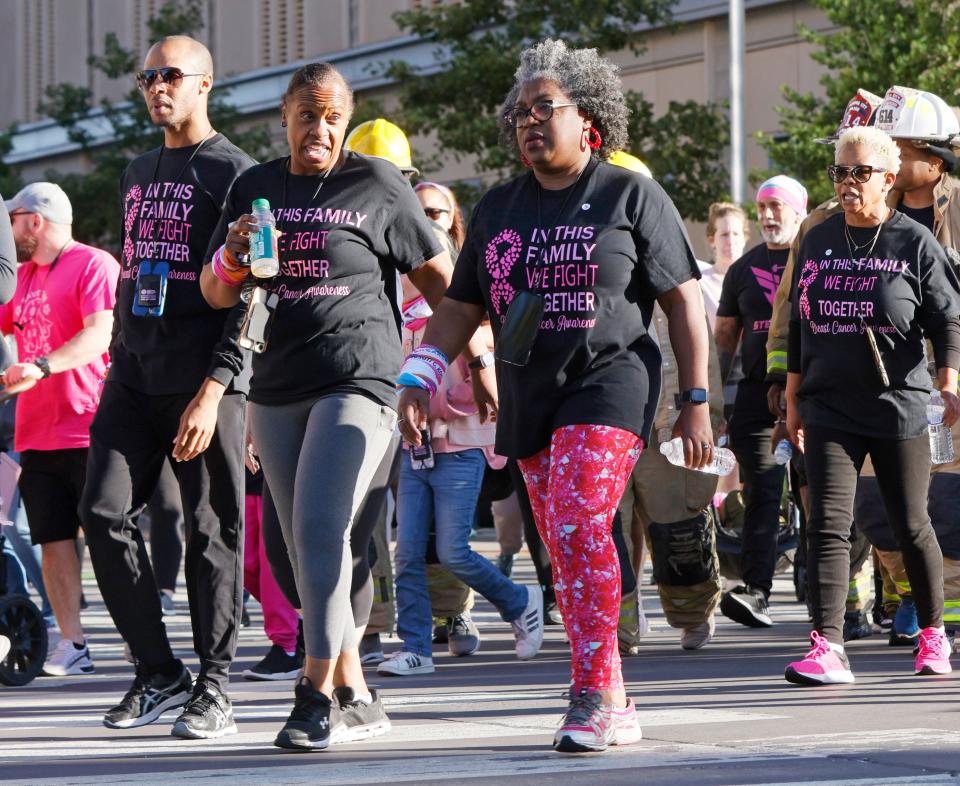How Nashville works to end disparities facing Black women with breast cancer | Opinion
Breast cancer is the most common cancer diagnosed among women in the U.S. and the second leading cause of death from cancer among women after lung cancer. Black women are less likely, 57%-60%, to be diagnosed with early-stage breast cancer.
Differences in stage at diagnosis by race and ethnicity reflect inequities in the access and quality of breast cancer screening. Access to healthcare influences the use of prevention and early detection services− like tobacco cessation counseling and cancer screening− which impacts receiving cancer treatment and survivorship care.
One of the largest obstacles to high-quality care is cost, which is exacerbated for Black people by disproportionately low insurance coverage. In 2021, the U.S. Census Bureau estimated more than 836,000 Tennesseans were without insurance coverage.
Additionally, insured Black people are further disadvantaged by having a higher likelihood of inadequate health insurance. Compared to their uninsured counterparts, those with health insurance are more likely to have a usual source of care, utilize preventive services, and seek care when it is needed.
Conversely, individuals without health insurance are more likely to be diagnosed with advanced cancer and have a higher risk of their diagnosis leading to death compared to people who are privately insured.
Hear more Tennessee Voices: Get the weekly opinion newsletter for insightful and thought provoking columns.
This disparity in screening and breast cancer incidence likely reflects a combination of factors for Black women− including later stage at diagnosis, higher rates of unfavorable tumor characteristics and higher prevalence of other health conditions. These inequities are largely underpinned by less access to high-quality health care across the cancer continuum from prevention to treatment because of longstanding systemic racism and its impact on the social determinants of health.

To be clear, Black women are being screened for breast cancer. However, whilenational screening rates are similar between white and Black women, Black women are more likely to be screened at lower-resourced and non-accredited facilities and experience longer intervals between mammograms, abnormal results and follow-up.
Nashville’s response to racial disparities in healthcare access
Positioned as Nashville’s essential hospital, Nashville General Hospital continues to work to reduce this disparity by making quality comprehensive healthcare accessible to all.
Nashville General’s Breast Health Center offers both preventative care and treatment and a comprehensive and compassionate approach to the diagnosis and treatment of breast cancer. With the new 3D imaging technology at our main Nashville campus, state-of-the art high-quality and accredited mammography is readily accessible.
Sign up for Black Tennessee Voices newsletter: Read compelling columns by Black writers from across Tennessee.
Additional support is provided through the following programs:
The Tennessee Breast and Cervical Screening Program (TBCSP) helps low income and uninsured women gain access to breast and cervical cancer screening and diagnostic services.
Nashville General Hospital’s Metro Healthcare Incentive Program, where all Nashville Metro Government employees and their dependents who are covered under a Metro medical plan are eligible for $0 copays and deductibles including mammography screening.

Your state. Your stories. Support more reporting like this.
A subscription gives you unlimited access to stories across Tennessee that make a difference in your life and the lives of those around you. Click here to become a subscriber.
Nashville General is a leader in evidence-based care, delivery and encourages women to get screened by making an appointment today.
Dr. Joseph Webb is the chief executive officer at Nashville General Hospital.
This article originally appeared on Nashville Tennessean: What Nashville is doing to treat Black women facing breast cancer

